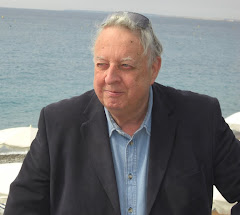There is no higher pinnacle in
all music than Johann Sebastian Bach's St. Matthew Passion
(circa 1727). Going on soon for 300 years since it first appeared, I
listened to it once again with amazement and admiration. No one beats
Bach's St. Matthew Passion. For around three and a half hours, the
procession of arias, choruses and recitatives (all expertly varied
and contrasted) delights the ear and the intellect. Nothing outstays its welcome.
With a wonderful variety of instrumental accompaniments in the many
arias, Bach proves himself at least the equal of Handel when it comes
to melody. How on earth someone in Saxony in the 18th
century could ever have conceived this music defies all imagination.
They don't compose music like this nowadays.
I listened to the work on a DGG set
from 1958 (really good sound from the old DGG) conducted by
the 33 year old Karl Richter, who started his Bach career at the
Thomaskirche in Leipzig. I originally acquired this recording in 1959
or 60 as a gift from one of my sisters (a box of four LPs). I now
have it on three CDs, expertly transferred by the old DGG. It's an
all-star production of the best of German singers and
instrumentalists in Munich at that period, with soloists including
Ernst Haefliger, Irmgard Seefried, Hersha Töpper and Dietrich
Fischer-Dieskau. Tempi are relatively swift for those times, with
nary a periwig, castrato or gut string in sight. It is my kind of
Bach playing, and my kind of music; the first 20 seconds of the work
are incredibly moving in announcing the tragic events to be narrated.
I am now firmly stuck on Bach for a
period. It is no accident that he always features Number One when any
lists of greatest composers are compiled. The Matthew Passion is
assured of a further 300 years of life, but perhaps not in Israel,
though the Jews in the St. Matthew Passion are not quite as
villainous and blood-thirsty as those in the St. John Passion.
